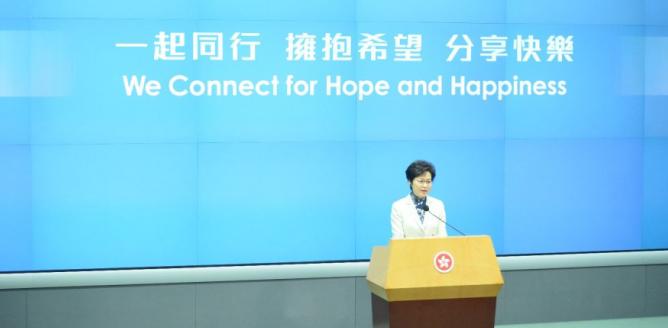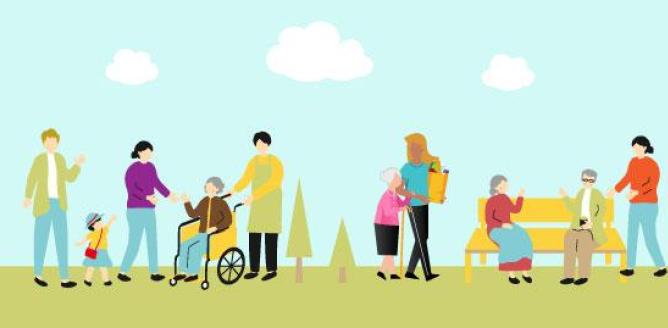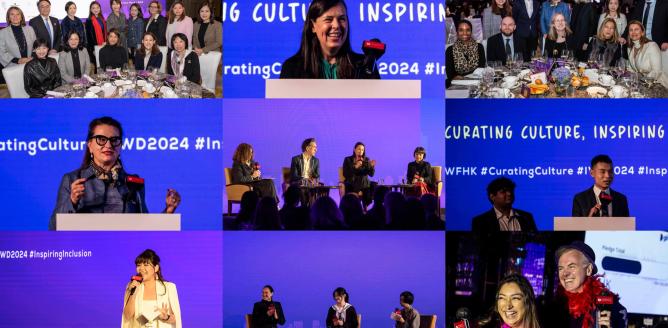Hong Kong Government Update:
Last week, Chief Executive Carrie Lam delivered her highly anticipated first policy address.
We congratulate and support Mrs Lam on the address and her recognition of the valuable role that women play in the formal economy through various new policy initiatives. While it is encouraging to see the injection of funds into developing young, local talent; increased support and services for the elderly; and exciting developments in tech and innovation, we would like to see more focus on policies and programmes to address the challenges that women and girls continue to face in Hong Kong.
That said, there were encouraging developments that we hope will be followed by detailed and thoughtful implementation. Given the UN’s recommendation for Hong Kong to extend its maternity leave in the last CEDAW review, we are encouraged by the Government’s commitment to undertake a study on the enhancement of maternity leave and their review of the Labour Bureau's suggestion of extending paternity leave from 3 to 5 days. We hope they will join others in the region that offer paternity leave like Mainland China (14 weeks), Japan (14 weeks) and Singapore (16 weeks). In the meantime, we encourage private sector companies to take the lead in ensuring their leave policies are in line with the international standard of 14 weeks, and to consider adopting parental leave policies to encourage the role of active parenting for both men and women.
It was also heartening to hear the Government has pledged to provide 300 additional child care centres, and enhance community and home care support services for the elderly, persons with disabilities and children. They have also assured there will be greater support to low income families through subsidised after-school learning and support programmes. As women still comprise the majority of primary caregivers in Hong Kong, we hope these additional services reduce the burden of care and enable women to be full economic participants in society. We also hope the Government will take steps to change perceptions around gendered work – that men and women are equal contributors both in the public sphere and in the private sphere, and that this work is equally valued. This could be seen in considering pension provisions for those (primarily women) who have been homemakers and caregivers.
From housing to our rapidly ageing population, Hong Kong faces a multitude of challenges in the coming few years. To transform these challenges into opportunities, we need – as Mrs Lam notes - to embrace a society that is “united, harmonious and caring.” We hope the administration will nurture these values as they embark on executing these policies. In turn, we hope companies, institutions, NGOs and individuals can all be more creative in the ways we collaborate and help fill the gaps in current policies to address some of the critical needs in our community together. TWF supports these initiatives and looks forward to working with Mrs Lam and her cabinet.
Hollywood Sexual Harassment – a new era?
Since our coverage last week, brave and extraordinary women have led a seismic upheaval in Hollywood – by speaking out.
Harvey Weinstein has been fired from his own company. Half of his board resigned and his business is up for sale. Weinstein himself is facing mounting allegations of sexual assault and predatory behavior over many years and sexual harassment allegations are being raised in other sectors. We salute the bravery and courage of all women who have raised their voices. The reports are harrowing but the impact has been extraordinary. But this story is bigger than Harvey Weinstein and Hollywood - too many of us have suffered the trauma of sexual harassment or assault. Sadly, it happens in everyday life for women all around the globe. We are heartened by influential female and male voices who are widening the conversation to larger systemic problems that need to be tackled to end sexual harassment of women. As actress Emma Thompson noted to BBC, "I don't think you can describe him as a sex addict — he's a predator...at the top of the ladder of [in] a system of harassment, and belittling, and bullying, and interference...What we need to start talking about is the crisis in masculinity, the crisis of extreme masculinity." See details in “What We’re Reading” below.
Are we finally witnessing a critical cultural shift in attitudes towards sexual harassment? Our take: women have had enough and our voices are finally being heard.
As usual we would love to hear from you. Get in touch at Fiona.Nott@twfhk.org





















